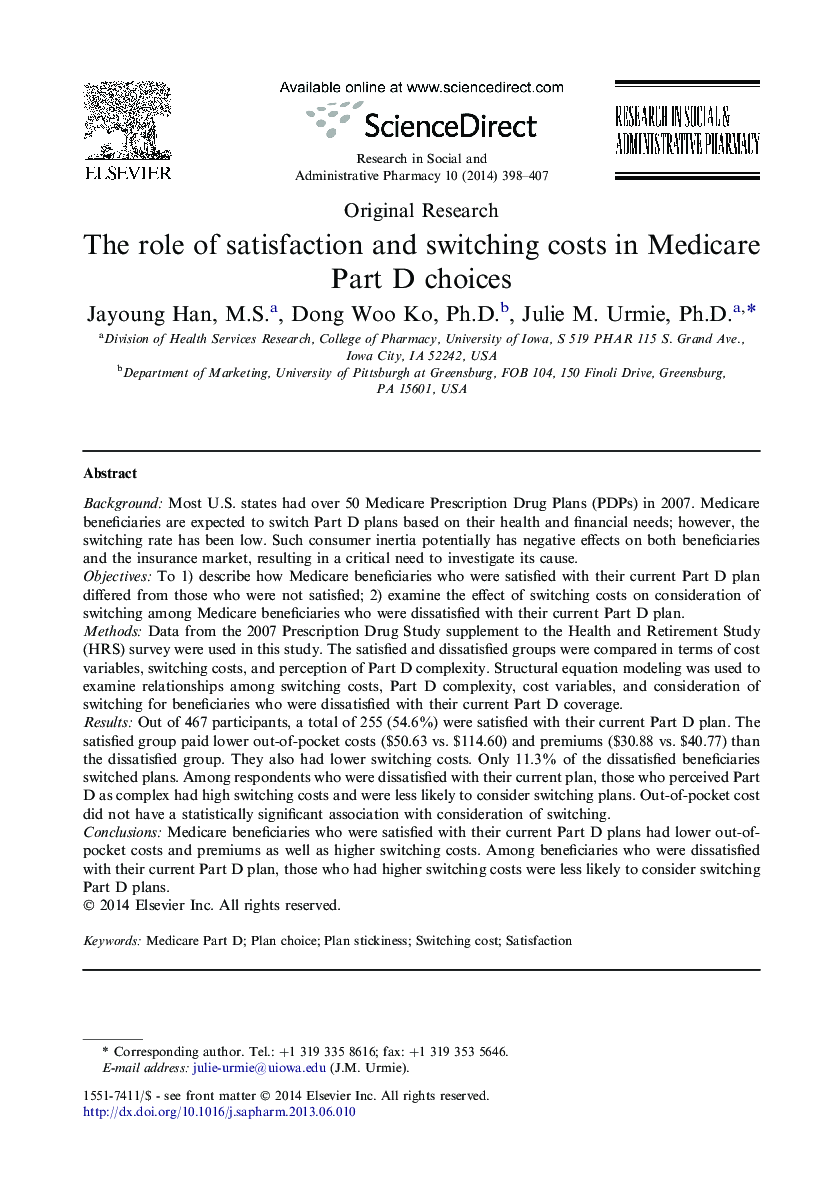| کد مقاله | کد نشریه | سال انتشار | مقاله انگلیسی | نسخه تمام متن |
|---|---|---|---|---|
| 2508577 | 1117612 | 2014 | 10 صفحه PDF | دانلود رایگان |

BackgroundMost U.S. states had over 50 Medicare Prescription Drug Plans (PDPs) in 2007. Medicare beneficiaries are expected to switch Part D plans based on their health and financial needs; however, the switching rate has been low. Such consumer inertia potentially has negative effects on both beneficiaries and the insurance market, resulting in a critical need to investigate its cause.ObjectivesTo 1) describe how Medicare beneficiaries who were satisfied with their current Part D plan differed from those who were not satisfied; 2) examine the effect of switching costs on consideration of switching among Medicare beneficiaries who were dissatisfied with their current Part D plan.MethodsData from the 2007 Prescription Drug Study supplement to the Health and Retirement Study (HRS) survey were used in this study. The satisfied and dissatisfied groups were compared in terms of cost variables, switching costs, and perception of Part D complexity. Structural equation modeling was used to examine relationships among switching costs, Part D complexity, cost variables, and consideration of switching for beneficiaries who were dissatisfied with their current Part D coverage.ResultsOut of 467 participants, a total of 255 (54.6%) were satisfied with their current Part D plan. The satisfied group paid lower out-of-pocket costs ($50.63 vs. $114.60) and premiums ($30.88 vs. $40.77) than the dissatisfied group. They also had lower switching costs. Only 11.3% of the dissatisfied beneficiaries switched plans. Among respondents who were dissatisfied with their current plan, those who perceived Part D as complex had high switching costs and were less likely to consider switching plans. Out-of-pocket cost did not have a statistically significant association with consideration of switching.ConclusionsMedicare beneficiaries who were satisfied with their current Part D plans had lower out-of-pocket costs and premiums as well as higher switching costs. Among beneficiaries who were dissatisfied with their current Part D plan, those who had higher switching costs were less likely to consider switching Part D plans.
Journal: Research in Social and Administrative Pharmacy - Volume 10, Issue 2, March–April 2014, Pages 398–407